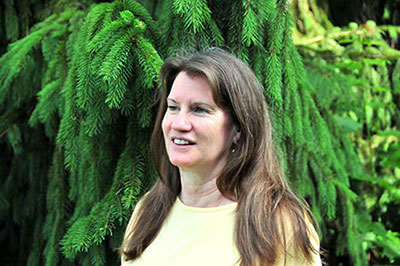
Joyce Hollyday received a 2013 Pastoral Study Project grant for COURAGE, COMPASSION, AND CHRISTIAN COMMUNITY: THE LEGACY OF THE BEGUINES. She recently completed the manuscript for her historical novel based on her research, tentatively titled Pillar of Fire.
LI: What prompted you to write Pillar of Fire?
JH: In the spring of 2012 I attended the premiere of The Hunger Games with a crowd from Circle of Mercy, the church I co-founded. The movie was filmed around nearby Asheville, NC and included one of our 12-year-old members as an extra. In our animated conversation after the showing, several youth expressed their appreciation for the popular trilogy on which the film series was based, but an even greater disappointment and longing for books that help them connect their Christian faith with the realities of the world.
Their challenge pushed me to write a historical novel for young adults based on the Beguines, a medieval expression of faith that has been described as “the world’s oldest women’s movement.” Set primarily in early 13th-century England and France, Pillar of Fire invites readers into a fascinating world of women who refused to accept that their only options were to be wives owned and controlled by their husbands or nuns cloistered and restricted by the church. Living together in spiritual communities devoted to prayer and compassionate service, these extraordinary women—about a million of them over several centuries—educated girls and provided safe haven from forced marriages, healed the sick and tended the dying.
LI: How has writing the novel challenged or changed you, and how do you hope it will challenge or change your readers?
JH: In a context removed by centuries but remarkably parallel to our own, the Beguines made a bold witness to the good news of the gospel. At a time marked by the oppressive grip of the Holy Roman Empire and the anti-Muslim fervor of the Crusades, they asked the same question with which my congregation grapples today: How are we to live as faithful Christians in an age when the ideology of empire rules, the needs of the poor are cast aside, war seems endless, and anti-Muslim hatred is rife?
Though the Beguines were initially admired for their works of mercy, they eventually faced the persecution of a church that could not tolerate women refusing male control. Several were martyred by the Inquisition. They’re an inspiration to me to act boldly on behalf of what I believe, whatever the consequences. I hope that will be true for readers of the novel as well.
I solicited feedback from young women during my writing process through a series of retreats funded by my grant. I was deeply moved as they shared their struggles to live by their faith and into their full giftedness in a culture that puts enormous pressure on them to be thin in body, spirit, and intellect. I took great delight in observing how their discovery of the Beguines challenged and encouraged them.
I also believe Pillar of Fire can speak to a broader audience. The Beguines have a great deal to teach us all about empowerment of women and the laity; spiritual formation and rituals that feed life and grow courage; simplicity and works of mercy as antidotes to empire and consumerism; and community as resistance to hierarchy.
LI: It sounds like you’re pioneering a new literary genre with this novel.
JH: I don’t know that I can claim that, but I will say that I have yet to encounter another historical novel set in the Middle Ages, written from a Christian feminist perspective primarily for young adults. I’m just beginning to wade into the process of finding a publisher for a book that doesn’t have an easy niche. But I’m convinced that it addresses a hunger.
In a 2012 New York Times article titled “Has Fiction Lost Its Faith?” author and editor Paul Elie asked, “Where has the novel of belief gone?” Praising the work of writers such as Flannery O’Connor and Walker Percy, Elie lamented the disappearance of religious fiction that invites readers to grapple with spiritual truth and act with conviction. I hope to contribute in a small way to a revival.
As I traveled throughout Belgium last spring on a journey that was both research trip and spiritual pilgrimage, I discovered that the legacy of the Beguines is a strong source of pride and inspiration in Europe. It seems a grievous error of church history that so little is known here about the movement theologian Dorothee Soelle called “one of the rarest examples of a mystically inspired new form of life created by women for women.” When I share in a variety of contexts what I’ve learned about the Beguines, again and again I hear, “How is it that I never heard of them?” I plan to spread around their almost-forgotten witness from the past in the hope of changing the responses of the future.